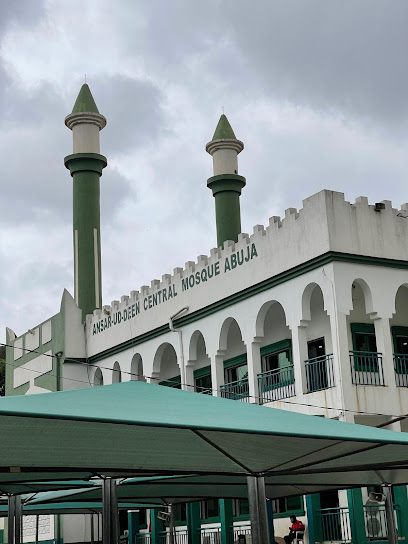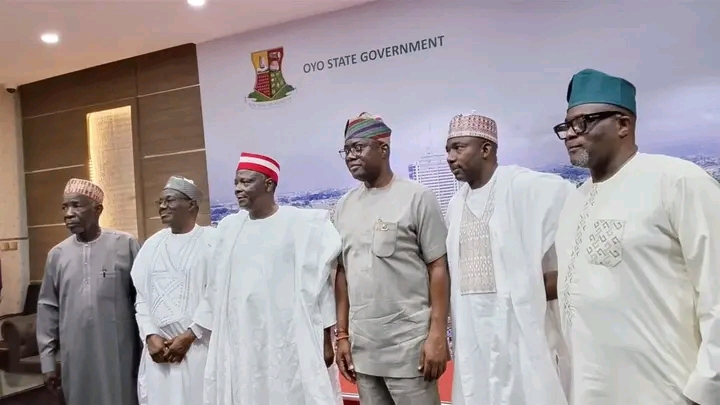Available Nigerian literature on education is replete with three systems of education, to wit; traditional education, Islamic education and Western (conventional) education. When these three systems are mentioned, little do we realize that it is through a combination of the three education systems that a balanced education for the Muslim child can be achieved. In a sense, we may simply define the concept of a balanced Muslim education as the total aggregate of functional learning in each of the three systems of education received by the Muslim child, to become a balanced personality before his Creator and for the benefit of humanity. But the concept of balanced education itself seems not to have received serious attention in education literature, until very recently. What is known and well-articulated is a related concept of functional education. In an academic paper, published a month ago, Mahfouz Adedimeji, an Associate Professor of Pragmatics and Applied English Linguistics at the University of Ilorin, Ilorin, elaborated tersely, the imperativeness of a Balanced Education for a balanced Muslim personality, by saying:
“The relationship among the three basic forms of education, the Traditional, the Western and the Islamic can be illustrated by Figure 1 where each type is a ring that combines with others to form a cluster. There is a symbiotic relationship on the one hand and there is convergence on the other. This means that traditional education will be defective without Islamic and Western education while Western education will be shallow without Islamic and Traditional education. Islamic education which ought to be all-encompassing in spirit will be hollow in practical terms today without being combined with Traditional and Western education. The middle point of intersection is the desired balanced education.” (See M.A Adedimeji, Fostering Functional Education System for Peaceful Co-existence in Nigeria: Islamic and Western Perspectives in Language, Education and Religion for National Development: A Festschrift in honour of Prof. AGAS Oladosu edited by M. M. Jimba, M. A. Adedimeji, M. A. Lawal and M. S. Abdullahi pp. 133-134)
Adedimeji’s submission is profound and volume-speaking on the type of education Nigerian Muslims – or any Muslim at that – should acquire. Truly, Islamic education is all-encompassing in its divine form and content, but the education managers to implement such type of education are imperfect; hence, there is the possible occurrence of problems in the administration of Islamic education. The reality today is that Islamic education is facing various challenges across the globe. In Nigeria, for instance, an essential component of Islamic education that is grossly lacking is adab (good breeding or ethics). Whereas, adab is the prelude to acquisition of ‘ilm (knowledge) and it is often said that adab occupies a pre-eminent position and is superior to ‘ilm. Had adab occupied its rightful position in the education of the Muslims in Nigeria, the advocacy on traditional education for Muslims may be needless. But Muslims’ conception of education in this part of the world is somewhat faulty too, as education is understood, mainly, within the purview of ta‘leem (impartation), tarbiyah (nurturing), or ma‘arif (recognition or perception), thereby neglecting the vital concept of ta’deeb (education), which is the crux of education in Islam judging by the lenses of truth (haqq) and reality (haqiqah). This can further be illustrated by the qualitative and comprehensive education (ta’deeb) received by the Prophet Muhammad (may Allah’s peace and blessing be upon him) from his Lord, which is the most excellent education ever experienced by any human.
Aside the Prophet, evidence of adab abounds in the lives of learned Muslims from early Islam till contemporary time. In fact, adab or ta’deeb forms an integral part of the intellectual history of Islam. For instance, Imam Malik said of his mother that she would turban him and thereafter ask him to go to Rabi‘ah (one of Malik’s teachers) to learn from his manners of good breeding (adab) before acquiring knowledge (‘ilm). One of his distinguished students, Imam Shafi‘ee, said: “I used to flip through the pages of books in a very gentle manner in the presence of Imam Malik, out of reverence for him so that he did not get distracted by the sound of the paper.” Rabee‘, a student of Imam Shafi‘ee, said of his teacher, thus: “By Allah, I do not have the courage to drink water, while Shafi‘ee is looking towards me due to the reverence I have for him.” The instances are inexhaustible.
In the absence of adab component in the education of the Muslim child, the alternative is to resort to the positive aspects of traditional education to feel the void, they include, but not limited to; development of character, vocational training, community participation, promotion of permissible and non-harmful cultural practices, and respect for elders, peer groups and constituted authorities. Such traditional education in the lexicon of the Yoruba people of Southwestern Nigeria is called “Eko Ile” and whoever lacks it, is considered to be grossly lacking in home-training. In addition, his or her parents or guardians are not regarded as responsible members of the society. Ibn Uthaymeen, a distinguished Sharia jurist of the Twentieth Century, gave a vivid description of lack of adab among students, when he said: “Some students are now more rude than Arab Bedouins of the time past. They are not cheerful, they do not say any greeting (taslim), neither do they respect others. To some people, the more knowledge they acquire, the more arrogant they become. We seek for Allah’s protection.” (See Liqaa’ul bab al maftuh p. 232)
Where adab is missing among people, it becomes very easy to commit sins of any magnitude, the likes of which Mahatma Ghandi described as Seven Deadly Sins of wealth without work, pleasure without conscience, science without humanity, knowledge without character, politics without principle, commerce without morality and worship without sacrifice. The bane of Nigeria’s precarious challenges can better be understood from the absence of adab in the life of the vast majority of her citizens, for which imbalanced education is the root cause.
I hold the view that balanced education is a right of every Muslim child. Every education manager and administrator should be concerned about the decline in our standards. For the Muslim proprietors of Private Conventional Islamic Schools (PCISs), there is much left undone. In an earlier article, I had mentioned the low level of Arabic-Islamic education in PCISs as a drawback to the realization of a robust blend of Conventional and Arabic-Islamic education – a desire of a vast majority of Muslim parents. Here, I introduced adab or ta’deeb to the discussion to remind us about our primary role as mu’addib (educator), not just mu‘allim (teacher) nor murabbiy (nurturer). I shall, in due course, show more commitment to these and other issues through my soon-to-be-launched Edu Consultancy Initiative, inshaAllah. The focus of the Initiative is basically to assist PCISs in self-evaluation, so that the quality of processes, products and services is ensured for a balanced Muslim education. The initiative may also render pro bono services to interested private modern Arabic schools, especially on possible areas of improvement of our traditional Arabic education. The name of the initiative itself will soon be announced. I shall keep you posted. Thanks.
Don’t forget to promote some adab today!
PS: PCISs are private schools, below the tertiary level, offering a combination of Conventional (Western) and Arabic-Islamic types of education.
__________________________________________
Idris Alao holds a Bachelors of Arts Education degree in Islamic Religious Studies Education from the prestigious citadel of academic excellence, the Lagos State University. As an Educational Consultant, Edupreneur and Professional Teacher, he has rendered top-notch private consultancy services to some PCISs with the sole aim of helping schools to achieve their stated objectives. He possesses the expertise in practical approaches to achieving a robust combination of Conventional and Arabic-Islamic types of education and has assisted some PCISs owners to record high return on investment (ROI). You can reach him through [email protected]
Advertisement






